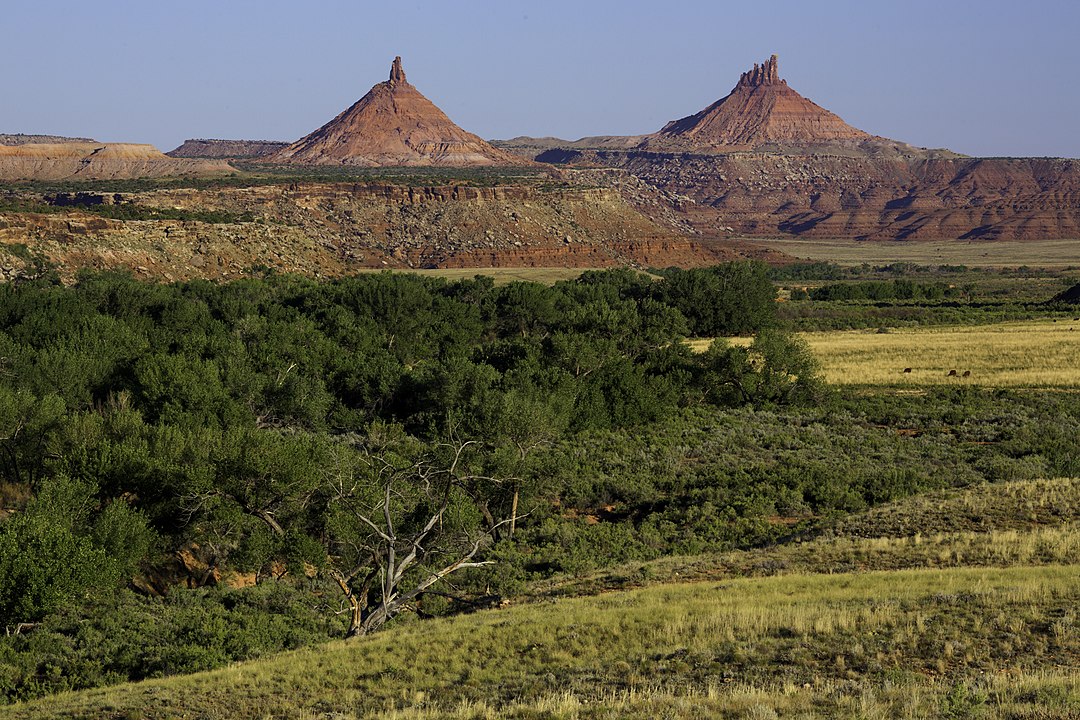
- Details
- By Native News Online Staff
The Bureau of Land Management Monticello Field Office and U.S. Department of Agriculture Mani-La Sal National Forest will be hosting a public meeting of the Bears Ears National Monument Advisory Committee on Wednesday, November 8.
Planned agenda items include an overview of the resource management planning efforts to date, next steps in planning, general management, and administrative updates. The agenda will include time for public comment.
Bears Ears National Monument, located in southeastern Utah and encompassing more than 1.3 million acres, carries a rich cultural heritage and is held sacred by many Native American Tribes, who continue to rely on the lands for traditional and ceremonial purposes. The area includes more than 100,000 archaeological sites.
Bears Ears has been the subject of many legal filings since President Barack Obama declared it a National Monument in 2016. In 2017, Trump cut the size of the area protected by the National Monument designation by nearly three-quarters. In 2021 on his first day in office, President Joe Biden restored the protected area. ; the state of Utah sued the administration in 2022, alleging that Biden’s restoration “violates a law that limits U.S. presidents to create monuments “confined to the smallest area compatible with proper care and management of the objects to be protected.” In August 2023, a U.S. District Judge dismissed the lawsuit.
The Bears Ears National Monument Advisory Committee is a citizen-based committee consisting of up to 15 members representing interests in the local community and monument values. Members represent a variety of local interests and expertise, including representatives of tribes that have ancestral ties to the area, including Navajo Nation, Hopi, Ute Mountain Ute, Ute Indian Tribe of the Uintah and Ouray Reservation, and the Pueblo of Zuni.
The meeting will take place on Wednesdy, November 8 from 10 a.m. to 4 p.m. MT at the Hideout located at 648 South Hideout Way, Monticello, UT 84535. There will also be a virtual meeting attendance option.
More Stories Like This
A River Worth Defending: Chilkat Community Mobilizes Against MineU.S. Forest Service Approves Drilling at Pe’ Sla, Threatening Indigenous Land and Water
Gwich'in Tribal Governments Submit Comments Challenging Fish and Wildlife Service's Inadequate Environmental Review of Arctic Refuge Snow Road
Rappahannock Tribe Challenges 9M-Gallon Water Plan
Feds release draft long-term plans for Colorado River management
Help us defend tribal sovereignty.
At Native News Online, our mission is rooted in telling the stories that strengthen sovereignty and uplift Indigenous voices — not just at year’s end, but every single day.
Because of your generosity last year, we were able to keep our reporters on the ground in tribal communities, at national gatherings and in the halls of Congress — covering the issues that matter most to Indian Country: sovereignty, culture, education, health and economic opportunity.
That support sustained us through a tough year in 2025. Now, as we look to the year ahead, we need your help right now to ensure warrior journalism remains strong — reporting that defends tribal sovereignty, amplifies Native truth, and holds power accountable.
 The stakes couldn't be higher. Your support keeps Native voices heard, Native stories told and Native sovereignty defended.
The stakes couldn't be higher. Your support keeps Native voices heard, Native stories told and Native sovereignty defended.
Stand with Warrior Journalism today.
Levi Rickert (Potawatomi), Editor & Publisher

